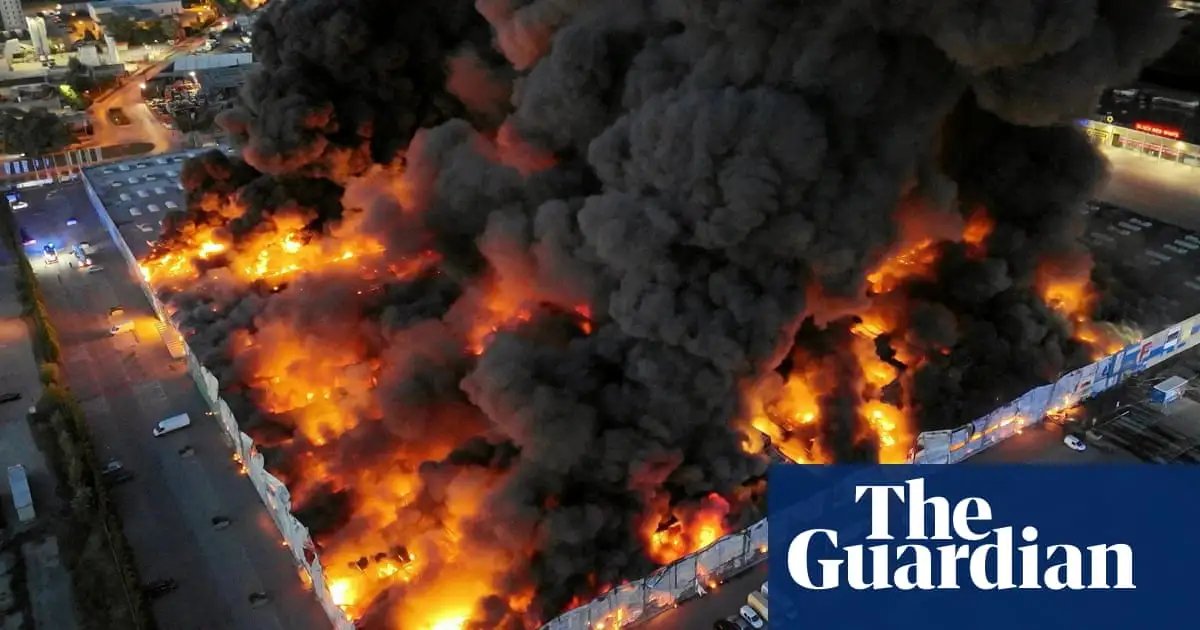Security services say spate of fires and infrastructure attacks could be part of systemic attempt by Russia to destabilise continent
Security services around Europe are on alert to a potential new weapon of Russia’s war – arson and sabotage – after a spate of mystery fires and attacks on infrastructure in the Baltics, Germany and the UK.
When a fire broke out in Ikea in Vilnius in Lithuania this month, few passed any remarks until the Polish prime minister, Donald Tusk, suggested it could have been the work of a foreign saboteur.
Imagine being sat at the really long table with Putin, saying how the mission to burn down an IKEA in Lithuania was a great success.
Which is a pretty counterintuitive russian tactic,
Brucelike what better option for building long tables would there be than cheap Swedish modular furniture systems?Yeah, Bruce, what the hell?!
That guy is such a fuck up!
I believe this is covered in chapter three of Vladimir Putin’s “How to make friends in the modern world.”
“Appear weak when you are strong, and strong when you are weak”
Burning down an IKEA is a pretty desperate move. They also don’t seem to realise that regardless of whether Europe supports Ukraine or not, Ukraine will never surrender. As long as a Ukrainian breaths, there will be resistance to Russia.
Maybe, it also has symbolic value, and might demoralise the civilian populace, whose support is crucial to the continued state support.
It still seems a weak move as infrastructure should be a more effective target, but who knows how many layers of distractions and attacks of opportunity really happen in the field?
Destroying a historic monument or building to demoralise would make more sense. Instead, we have the Russian War on Low Prices.
Nothing of this will work like that though, because Europeans are not tame and obidient in nature. A lot even rebellious. This will get more support for sanctions vs russia, military support for Ukraine and even some outrcries to strike russia directly.
So a British kid got paid by the Russians to burn down a Ukrainian businessmans warehouse? That’s pretty dumb, and kinda scary. Is this going to be the start of freelance darkweb mercenaries paid by belligerent states to sabotage their home country? I hope not because the added security they’d bring in to try and stop it would make life much harder for all of us.
New weapon? Already forgot the arson at Czech (I think) munition depot a couple of years back?
The article states that there is no evidence that this is caused by Russia. But then goes on to speculate that it’s caused by Russia. Journalistic standards have fallen.
The Guardian – Bias and Credibility
Bias Rating: Left-Center
Factual Reporting: Mixed
Country: United Kingdom
Press Freedom Rating: Mostly Free
Media Type: Newspaper
Traffic/Popularity: High Traffic
MBFC Credibility Rating: Medium Credibility
MediaBiasFactCheck.com: About + Methodology
Ad Fontes Media Rating: Left / Reliable
Article By: Lisa O’Carroll
Wow, I definitely didn’t expect that “Factual Reporting” would be “Mixed”, however going through the list, it shows several instances where they misunderstood either a scientific paper or misrepresented some fact.
That said, I had before in some cases seen articles about AI being either false, misunderstanding the facts, or just parroting some CEO. I attributed it to AI being something relatively “new” to mainstream media, but this is pretty much eye opening.I like their “long read” articles though, but I guess it’s time to find a new main everyday paper for me…
Uh, other journalists have called it The Gruniard for years because it has so many mistakes 😂
That name comes from typesetting errors rather than factual mistakes (and is also a holdover from the pre-computer era when spell checking wasnt a thing)
I think this bit sums up the reason for the rating pretty well. Not sure if I completely agree, but it makes sense to me.
The Guardian has failed several fact checks, they also produce an incredible amount of content; therefore, most stories are accurate, but the reader must beware, and hence why we assign them a Mixed rating for factual reporting.
That makes sense.
Reuters is the best paper out there, full stop.
So there is no evidence, just speculation. Nothing to see here then.
It sucks that we live in a world where it’s impossible to tell if this is real, complete nonsense, or a false flag operation.
Always was.




